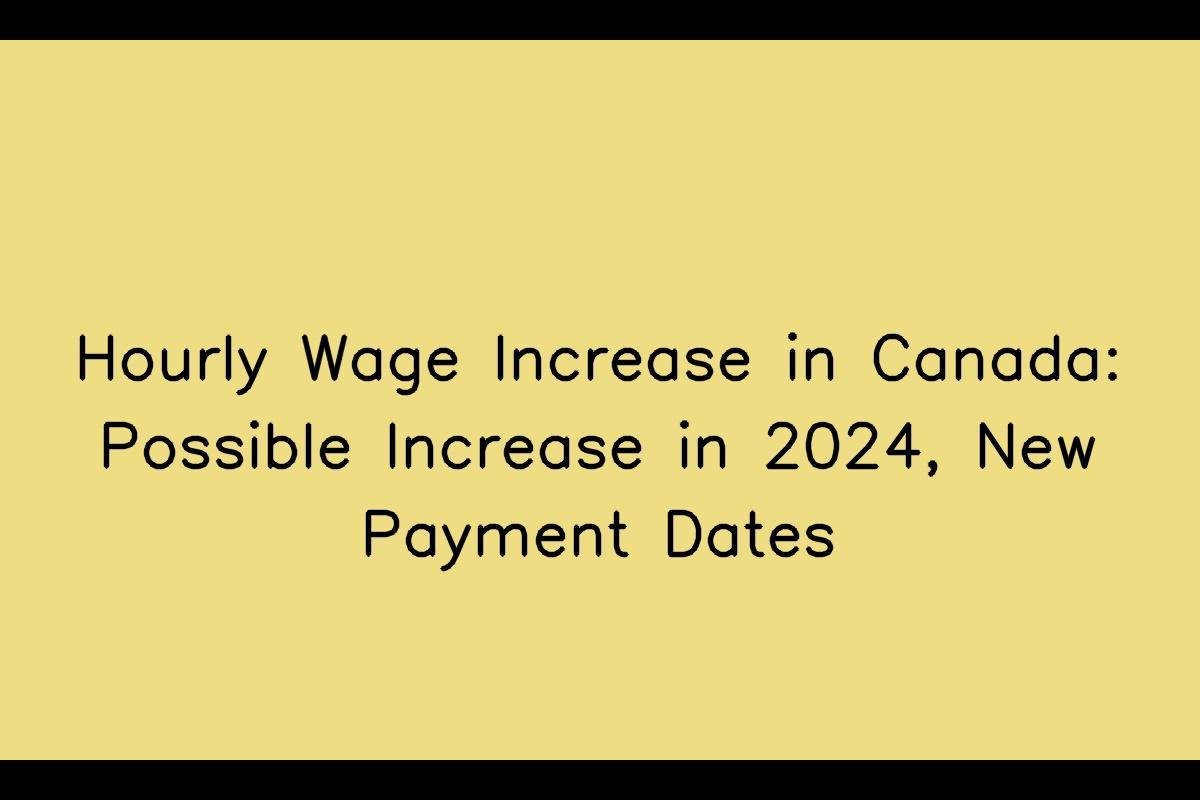Contents
Canada Hourly Wage Increase 2024: What’s Expected and New Payment Dates

Most recent news: Canada’s federal legislation and guidelines are expected to undergo various adjustments as 2024 draws near. The anticipated rise in Canadian workers’ hourly wages is one of the significant changes. Every worker in the nation needs to be aware of the prospective pay increase and the dates it will take effect because it will have an immediate negative influence on their financial security.
Importance of Hourly Wage Increase
The purpose of minimum wage laws is to guarantee that workers earn a livable wage, hence reducing economic inequality and poverty. Over time, the true worth of workers’ earnings is maintained by modifying the minimum wage to reflect changes in inflation and living expenses. Beyond just affecting individual workers, minimum salaries also have a big impact on labor markets and the overall economy. They also have an impact on economic stability.
Overview of Canada Hourly Wage Increase 2024
Canada’s hourly minimum wage is currently $16.50, but several governments have announced plans to increase it to reflect inflation. The fact that these hikes’ implementation dates differ between provinces emphasizes how flexible the nation’s wage laws are.
Possible Increase in 2024
A number of provinces have indicated that they intend to boost the minimum wage above the current $16.50 per hour, and several of them intend to index future increases to inflation. This possible modification is a reflection of the continuous attempts to guarantee that workers are fairly compensated in accordance with the state of the economy.
Effective Dates for Hourly Wage Increase
A number of provinces are expected to see increases in the minimum hourly wage in 2024. April 1st will see a $0.40 increase to $15.40 on Prince Edward Island; on October 1st, there will be a further $0.60 increase to $16. Starting on April 1, the $15 minimum wage in Nova Scotia will increase by one percent per year in addition to inflation. On October 1, Ontario also intends to increase the minimum wage to $16.55 per hour, in line with its annual adjustment. Significantly, Canadian authorities have declared that, as of January 1, 2024, applicants for study permits will not have to account for living expenses.
In Conclusion
The country’s labor market is about to undergo major upheaval due to the projected 2024 increase in the hourly wage, which would have an effect on both the general economy and the livelihoods of workers. In order to effectively manage the changing pay standards, people must remain updated about the latest developments as these adjustments are implemented. For regular updates on Canada’s hourly wage increase and other pertinent news, keep checking our portal.
FAQs
What is the significance of minimum wage regulations?
The purpose of minimum wage laws is to guarantee that all workers are fairly compensated, which lowers economic inequality and poverty.
When will the hourly wage increase take effect in Prince Edward Island?
On April 1st, the hourly pay will rise by $0.40 to $15.40, and on October 1st, it will rise by an additional $0.60 to $16.
How are provinces planning to align future wage increases with inflation?
As part of their attempts to guarantee equitable pay in accordance with the state of the economy, several provinces intend to link future wage increases to inflation.
